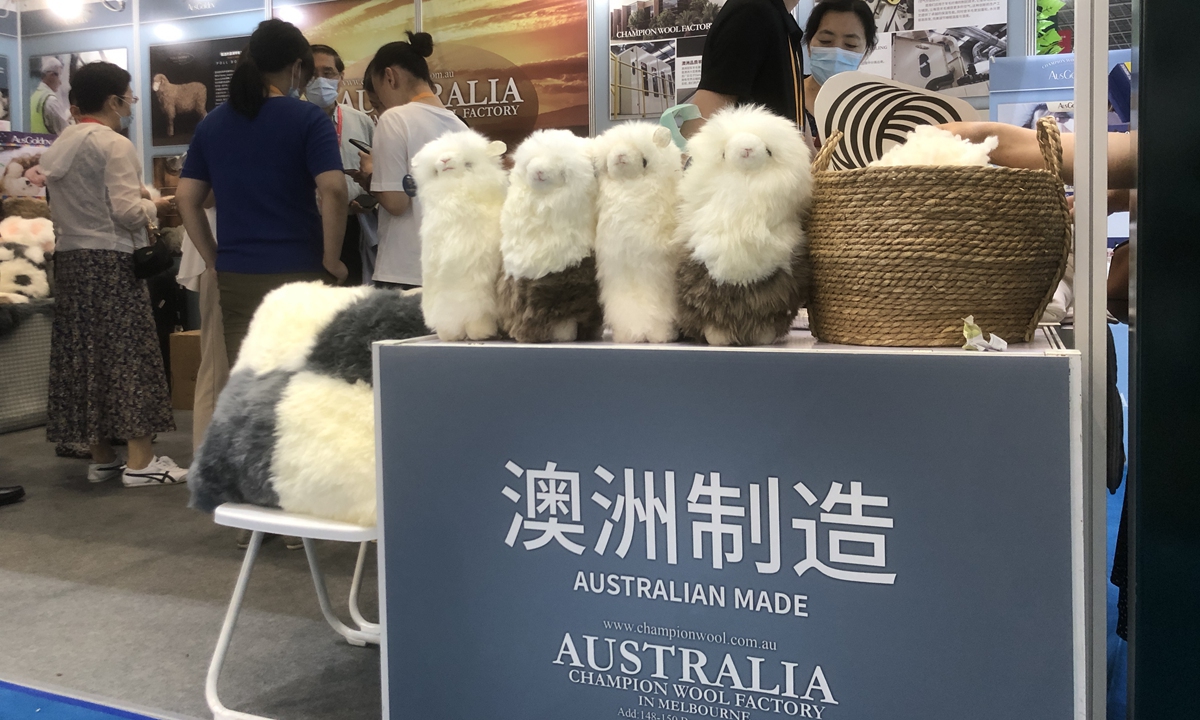
Australian firm Champion Wool Factory presents its wool products during the China International Consumer Products Expo in Haikou, capital of South China's Hainan Province on May 8, 2021. Photo: Zhang Hongpei/GT
China has raised the import quota for Australian wool in 2022 by 5 percent compared with 2021, according to the joint statement released by the China's Ministry of Commerce and the General Administration of Customs on Wednesday.
Industry insider said that the move is a direct reflection of China's active response to the market demand instead of using so-called "economic coercion" in the bilateral trade as some Australian government officials have claimed.
The import quota for the Australian wool in 2022 is to be 40,203 tones, a 5 percent increase compared with the 38,288 tons in 2021, according to the website of China's commerce ministry on Wednesday, despite worsening bilateral relations created by the Australian government that have casted a shadow of uncertainty on a number of export-oriented Australian goods including wine, beef and barley.
The quota increase has been on the 5-percent increase year-on-year against the backdrop of the bilateral free-trade agreement signed in 2015, according to media reports.
The move to increase Australia's wool import quotas next year is clearly a refute to Australia's claims that China is engaging in so-called economic coercion and is waging a trade war with Australia, Chen Hong, a professor and director of the Australian Studies Centre at East China Normal University, told the Global Times on Wednesday.
"This action shows that China has always acted in accordance with market conditions. In addition, it also shows that the demand in the Chinese market is always there," Chen said.
The Australian government has hysterically accused China over using the so-called economic coercion to stop its goods from entering the country, and even pushing for a WTO probe into China's anti-dumping tariffs on Australian wines.
"The Morrison government should stop its unfounded allegations against China over the hyped 'economic coercion,'" Chen said.
Soured relations between the two countries as the result of Australian government' provocative approach against China have seriously shaken the market and business confidence toward the Australian goods.
While Australian wool accounted for at least 80 percent of China's wool imports, Chinese companies previously sorted to diversify their sources of supplies to secure the supply chain.
Despite the increase on quotas, experts said that it takes time for the market confidence toward Australian goods to be fully restored, given Australian officials' rising hostile stance against China throughout the year.




